The National Democratic Alliance (NDA) was set to secure a dominant victory in the Bihar Assembly elections on Friday, making significant strides in over 200 of the 243 constituencies. With the Bharatiya Janata Party (BJP) emerging as the largest party, securing a striking 90 percent success rate, this outcome underscores the political influence of Prime Minister Narendra Modi, who led the NDA’s campaign in this politically sensitive state.
read also: Congress Claims Bihar Election Outcome Was Manipulated on a Massive Scale
Despite pre-election surveys and opinion polls that favored Tejashwi Yadav, the chief ministerial candidate from the Mahagathbandhan, the opposition alliance seemed to face a crushing defeat The Mahagathbandhan, comprising Rashtriya Janata Dal (RJD), Congress, three Left parties, and smaller factions, was barely on track to reach 35 seats.
The BJP’s remarkable achievement of winning 35 seats and leading in an additional 55 of the 101 constituencies it contested further solidifies its status as the country’s top political force The party’s performance helps offset setbacks from the previous year’s Lok Sabha elections, where it had to rely on coalition partners to maintain power at the center.
The high turnout of female voters, who outnumbered male voters by almost 10 percentage points, was seen as a key factor favoring the BJP-led NDA Various studies suggested that women voters in Bihar tend to favor the NDA.
The NDA’s victory in Bihar follows its strong performances in Delhi, Maharashtra, and Haryana, reaffirming its dominance across the country.
Prime Minister Modi and his ministers’ strong support for Bihar Chief Minister Nitish Kumar seemed to pay off for the Janata Dal-United (JD-U), which is expected to improve drastically on its 2020 performance of only 43 seats JD-U has now secured 24 seats and was leading in 64 others, with a nearly 19 percent vote share.
The Lok Janshakti Party (LJP), led by Union Minister Chirag Paswan, has also made gains, winning two seats and leading in 17 constituencies, despite having only 28 candidates in the race.
A simple majority in Bihar’s assembly requires 122 seats, and the NDA’s current tally places it well above this threshold.
Promises of “double-engine growth,” with the NDA in power at both the state and central levels, were popular among voters Issues like free electricity, increased social security pensions, and financial support to women appear to have resonated strongly with the electorate.
In contrast, the Opposition struggled to counter the BJP’s claims about the RJD, with its leader Tejashwi Yadav being criticized for allegedly continuing the legacy of “jungle raj”.
The election was held in two phases, and amid allegations of irregularities in the electoral roll revision, the outcome is seen as a potential precursor to the upcoming assembly elections in West Bengal and Assam.
Celebrations erupted in Patna, with BJP and JD-U workers marking their victories with drums, firecrackers, and slogans.
Among BJP’s prominent winners were Deputy CM Samrat Choudhary (Tarapur), and ministers Prem Kumar (Gaya Town), Sanjay Saraogi, and Raju Kumar Singh (Sahebganj) JD-U also had significant wins, including Minister Maheshwar Hazari (Kalyanpur) and former MLA Anant Kumar Singh (Mokama).
The RJD, despite being the largest opposition party, faced a poor showing with just six seats and 20 leads According to the Election Commission, Tejashwi Yadav, who was expected to perform well in his home constituency of Raghopur, faced an initial struggle but gained momentum later in the counting rounds.
Union Minister Jitan Ram Manjhi’s Hindustani Awam Morcha and Rajya Sabha MP Upendra Kushwah’s Rashtriya Lok Morcha, both junior allies of the NDA, secured strong positions with five and four seats respectively.
The Congress, often criticized for being a weak link in the INDIA alliance, performed poorly, winning only one seat and leading in five others out of 61 contested.
Hyderabad MP Asaduddin Owaisi’s AIMIM, which contested 32 seats, was ahead in six constituencies, while Prashant Kishor’s Jan Suraaj Party failed to secure any leads.
The BJP’s performance raises the possibility of internal demands for the party to consider a chief minister from its ranks, especially given its strong showing in this election and the JD-U’s underperformance.
Bihar remains one of the few states where the BJP has yet to independently form a government, but Prime Minister Modi and Home Minister Amit Shah have consistently backed Nitish Kumar’s leadership, a strategy reflecting the BJP’s reliance on coalition partners for power.

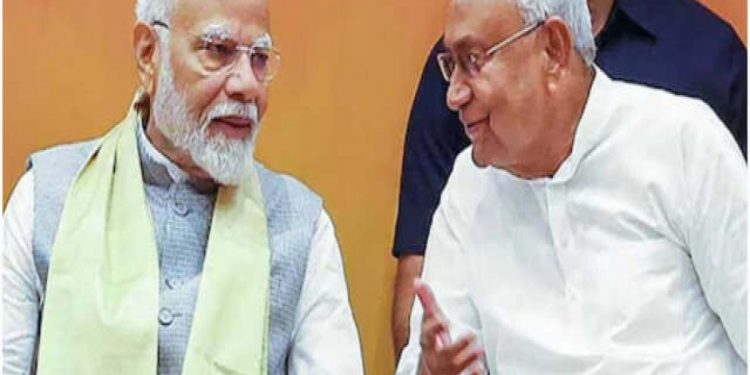
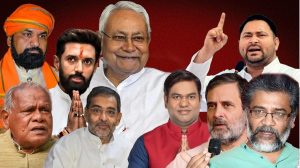
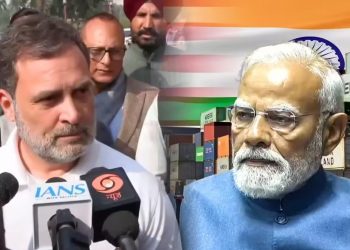
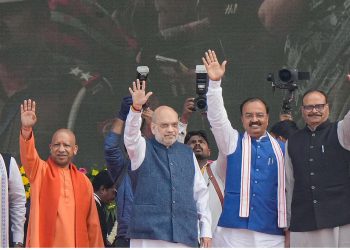
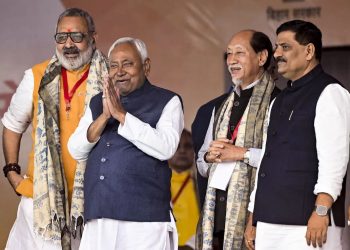

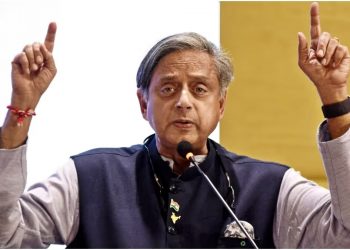
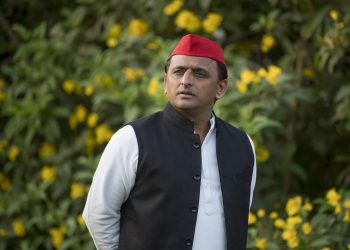

Discussion about this post